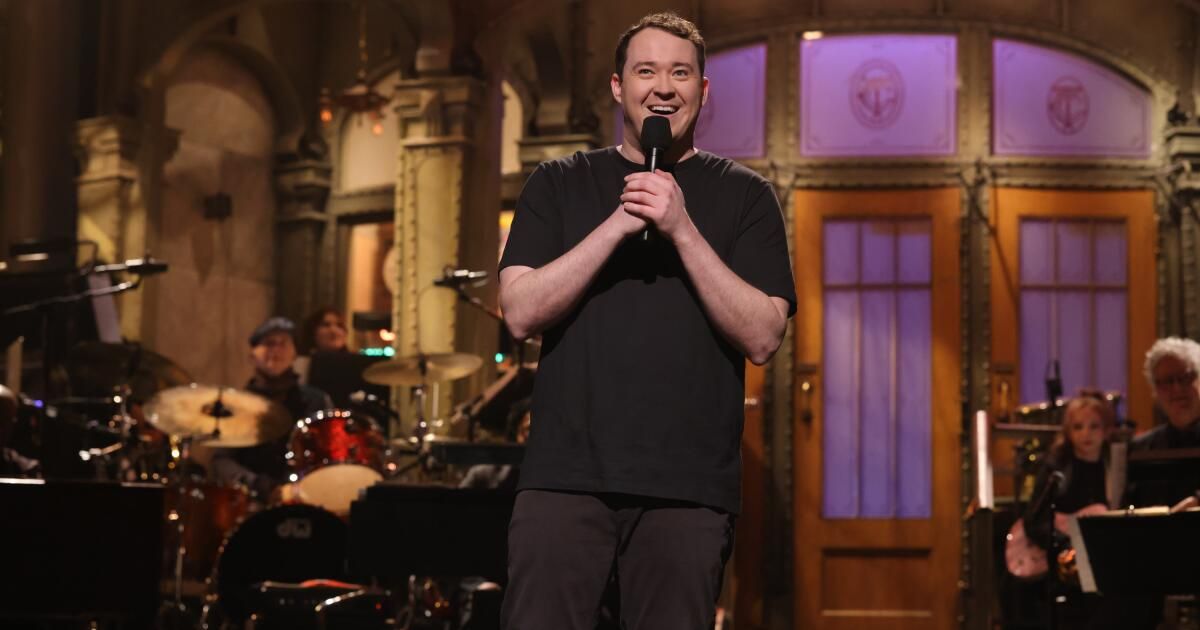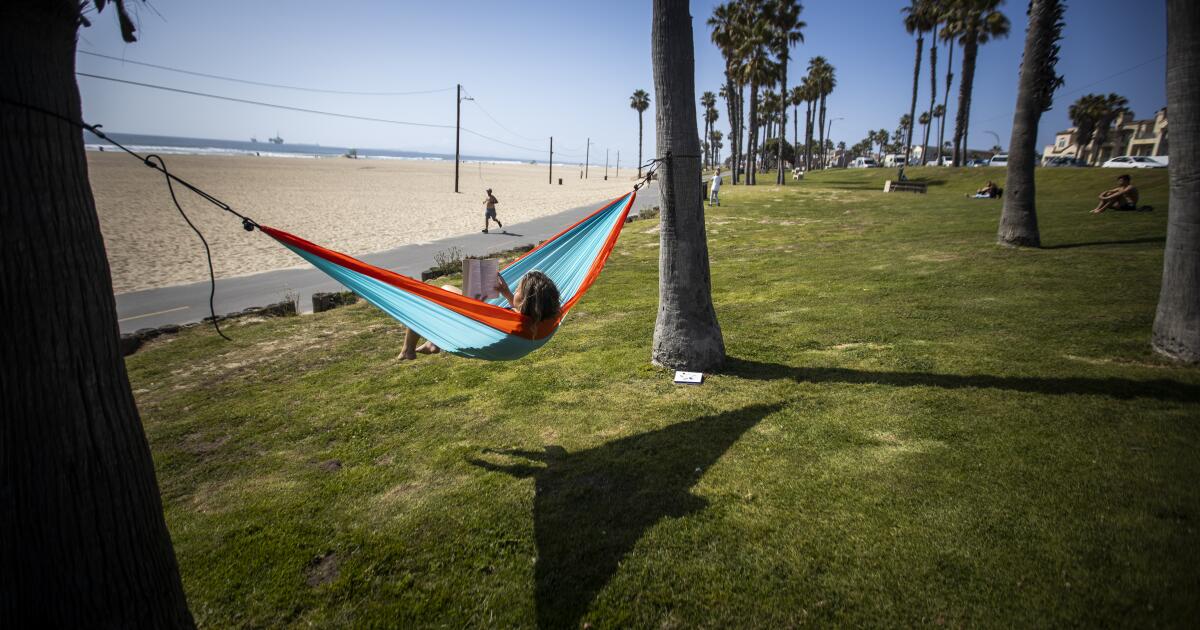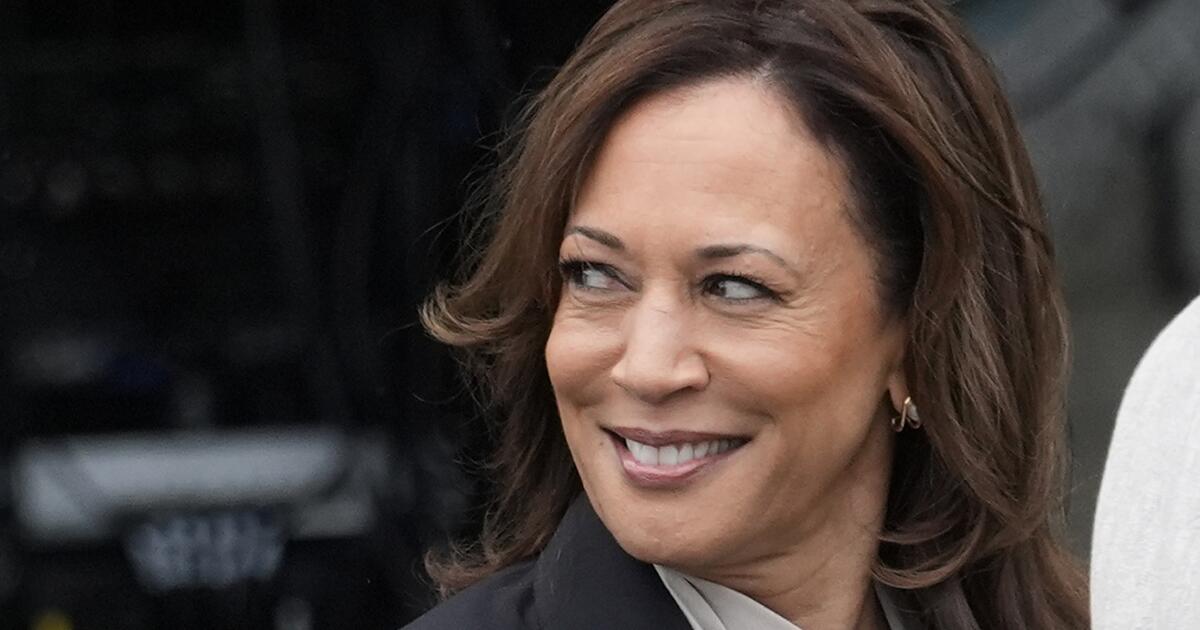Of course, I tuned into “Saturday Night Live.”
Who could resist the idea that comedian Shane Gillis, who was hired and then fired by the show in 2019 before getting a chance to appear on it, had been invited back into the hosting role? Had he done something to redeem himself?
opinion columnist
Robin Abcarian
You may remember the story of his brief rise and fall on “SNL.” Shortly after being announced as a new cast member, videos surfaced on YouTube of Gillis making racist, sexist and homophobic jokes. One was a clip from a 2018 episode of “Matt and Shane's Secret Podcast,” in which Gillis and his partner Matt McCusker trashed Chinese food, Chinese restaurants, and Chinatowns in general, and used fake accents to talk about food. like “nooders” (noodles). . It was stupid, racist, and painfully unfunny.
SNL creator and producer Lorne Michaels said he was not aware of the comments and found them “offensive, hurtful and unacceptable.” Ironically, the story broke the same day that “SNL” announced it had hired its first openly gay Asian-American comedian, the incredibly entertaining and versatile Bowen Yang. (The spectacular impersonator Chloe Fineman was also a member of that year's freshman class.)
Still, far from being Gillis's “cancellation,” the storm of 2019 appears to have been an excellent, if unsolicited, move in the relatively unknown comic's career. Since then, he has repeatedly appeared on “The Joe Rogan Experience.” Last year, his Netflix comedy special, “Beautiful Dogs,” was a smash hit. He and McCusker have the number one podcast on the subscription service Patreon. And on Monday, Netflix announced that he had acquired his six-episode scripted comedy series, “Tires.”
What we have here is perfect entertainment industry logic: “SNL” fires Gillis, which raises his profile, which leads to greater success, which leads to Gillis being invited back to “SNL” as host . It's a win-win situation.
By hosting “SNL,” Gillis proves he's not such a bad guy after all. And “SNL” can show that it is not entirely beholden to the leftist sensibilities that dominate the show. Was inviting Gillis back the comedic equivalent of adding viewpoint diversity? Or perhaps a way to drum up interest in a show with generally declining ratings?
Whatever motivated Michaels to bring Gillis back piqued my interest.
“Most of you probably have no idea who I am,” Gillis began. “If you don't know who I am, don't Google that.”
Not only did he seem humble for a podcast bro, he seemed incredibly awkward for a stand-up veteran. And so he confessed it. He was, he said, “more nervous than ever.”
So what did he talk about? Her family, mainly. He seems meek, right? What could he intervene in?
“My niece has Down syndrome,” he said, answering my question. The live audience fell silent. “And I thought that would get a bigger laugh,” she said, as the crowd laughed at her discomfort. “I thought we were allowed to have fun here.”
One of the small pleasures of watching the “SNL” monologue is checking out the expressions of the band members sitting behind the host. As Gillis spoke, they were impassive.
The rest of his part about his family seemed like the comic equivalent of the white person's defensive lament: “Some of my best friends are black.”
Before her niece was born, Gillis said, her sister, who, she said, “didn't know she could get pregnant,” took in and later adopted “three black children.” Her husband, “an Arab,” is from Egypt.
“You go to the house and it's like getting into the craziest Uber pool you've ever been to,” Gillis said. “It's crazy. Like, 'How did you guys meet?' “
What was supposed to be the climax of his monologue was an imaginary scenario in which a white boy on the playground calls his niece “retarded.” “Then three black kids fly out of nowhere and start whaling with that cookie.”
“I'm not saying it's something I'm looking forward to,” he said, “but I think it's going to be a good thing for the entire country.”
Some people found the part funny, but if you deconstruct it, what you have is a comedian who uses an insult to explain why using an insult is bad, and then plays on white people's fears of young black people as a punchline and wraps it around all in another insult. “Yes,” Gillis admitted, “I said 'cookie.' “
Listen, police comedy leaves a bad taste in my mouth. And offensiveness, like humor, is in the eye of the beholder. But hitting down while aiming to hit up isn't as fun.
That's why I find Dave Chappelle's routines about trans people so embarrassing. Making people who are routinely subjected to abuse and violence the butt of jokes turns me off.
And yet, I also think Netflix was within its rights in 2021 to tell employees who walked out on Chappelle's “The Closer” special that if they didn't like the programming, “Netflix may not be the best place for you.” ”.
I thought Gillis was pretty good in the episode sketches. But given her lackluster monologue, her appearance was essentially a stunt that backfired. Redemption? Not precisely.
“Honestly, I probably shouldn't be up here,” Gillis said.
There is no fight there.











